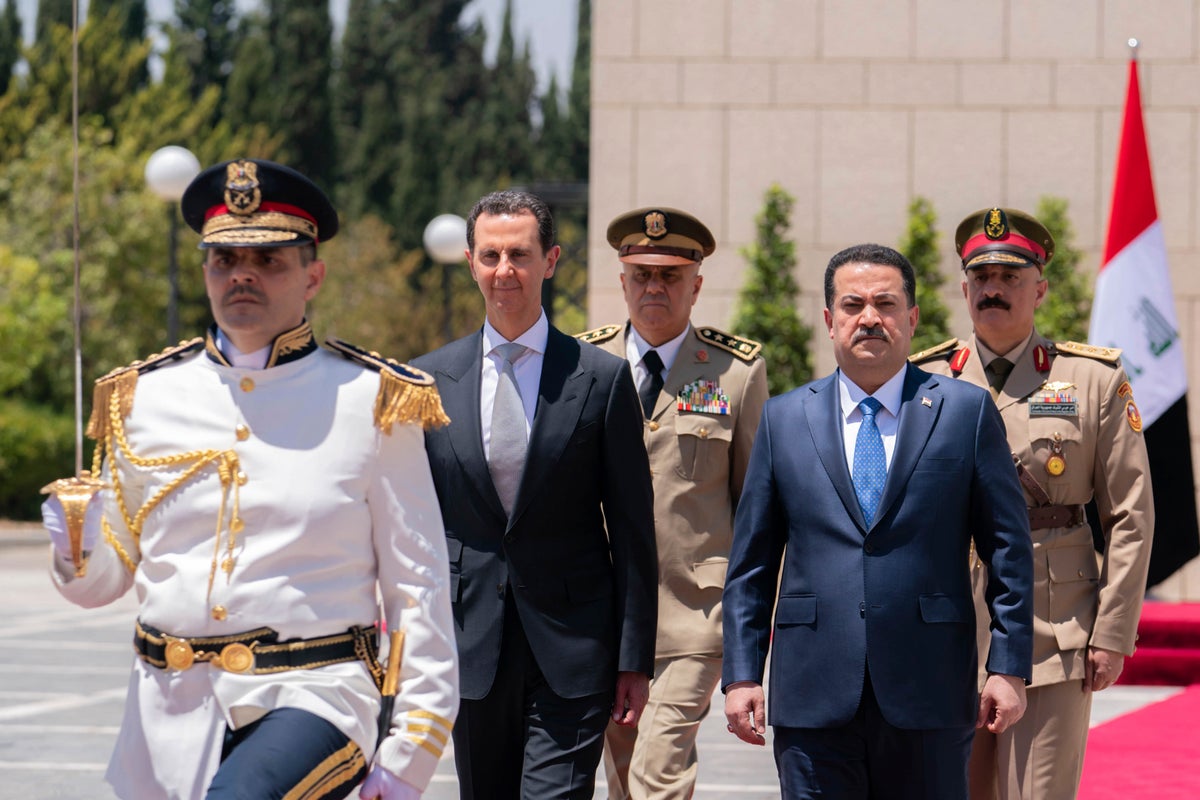
Iraq’s prime minister held talks Sunday with Syrian President Bashar Assad in Damascus during the first trip of its kind to the war-torn country since the 12-year conflict began.
Iraq and Syria have had close relations for years even after many Arab countries withdrew their ambassadors for Damascus and Syria’s membership in the 22-member Arab League was suspended because of the crackdown on protesters in 2011.
Assad received Mohammed Shia al-Sudani, who was heading a high-ranking delegation, at the presidential palace in Damascus. They discussed mutual relations and cooperation between the two neighboring countries among other issues, according to the office of Syria’s president.
Al-Sudani’s office said in a statement that talks revolved around ways of expanding cooperation in the fields of trade, economy, transportation, tourism, how to combat climate change and collaboration to fight terrorism.
Security cooperation against extremist groups was likely to be on top of the two-day visit's agenda. The two countries, where Iran enjoys wide influence, have a joint 600 kilometers-long (373 miles) border. In June 2014, the Islamic State group declared the establishment of a self-styled “caliphate,” a traditional model of Islamic rule, in wide areas under its control in Iraq and Syria.
After a yearslong campaign that left tens of thousands dead in both countries, IS was defeated in Iraq in 2017 and in March 2019 in Syria. Over the past years, Syrian government forces regained control of much of Syria with the help of Russia and Iran.
Earlier this year, Syria’s membership in the Arab League was reinstated and Assad attended the Arab summit that was held in Saudi Arabia in May.
Al-Sudani was invited to visit Damascus during a trip by Syria’s Foreign Minister Faisal Mekdad to Baghdad last month.
The U.S. has a presence in both Syria and Iraq and Syrian officials have been calling for the withdrawal of American troops from the country who first arrived in 2015.
On any given day there are at least 900 U.S. forces in Syria, along with an undisclosed number of contractors attempting to prevent the resurgence of the Islamic State group. U.S. special operations forces also move in and out of the country but are usually in small teams and are not included in the official count.
U.S.-led coalition forces have officially ended their combat mission in Iraq, but continue to play an advisory role to Iraqi forces in the fight against the Islamic State extremist group.







